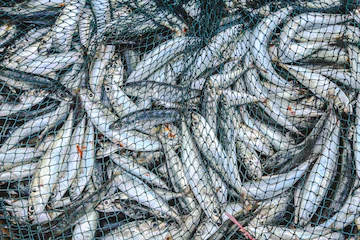Saturday, 21 February 2026

The ICAR-Central Marine Fisheries Research Institute (CMFRI) has called on fishers along the Kerala coast to follow sustainable harvest practices and respect the Minimum Legal Size (MLS) of 10 cm for the Indian Oil Sardine, in light of a remarkable resurgence of juvenile sardines.
A recent CMFRI study revealed a phenomenal surge in sardine recruitment during 2024, the highest since 2020. Favorable rainfall patterns and monsoon-driven upwelling of nutrient-rich waters boosted micro-plankton growth, resulting in a massive influx of young sardines into coastal waters. While this surge presents significant potential for the fishery, CMFRI emphasized that juvenile fishing could jeopardize long-term sustainability and fisher livelihoods.
“Protecting young fish is essential to ensure the long-term health of the sardine fishery and the food security of coastal communities,” said Grinson George, Director of CMFRI. He clarified that the study should not be misinterpreted to suggest juvenile sardines will not grow further; fishing juveniles remains strictly prohibited.
CMFRI recommended regulated harvesting of fish above the MLS, noting that high recruitment and productive coastal waters provide an opportunity to optimize yields responsibly. Principal Scientist U. Ganga added, “Sardine fisheries experience natural ‘boom and bust’ cycles influenced by environmental factors. Curtailing juvenile fishing is critical to prevent a collapse during the next ‘bust’ phase.”
With India’s sardine fishery being a key source of livelihood and nutrition for millions, adherence to the MLS and sustainable harvesting guidelines is essential to safeguard both economic and ecological outcomes. CMFRI reaffirmed that these measures are vital for maintaining long-term resource security, stable incomes for fishers, and the resilience of coastal ecosystems.